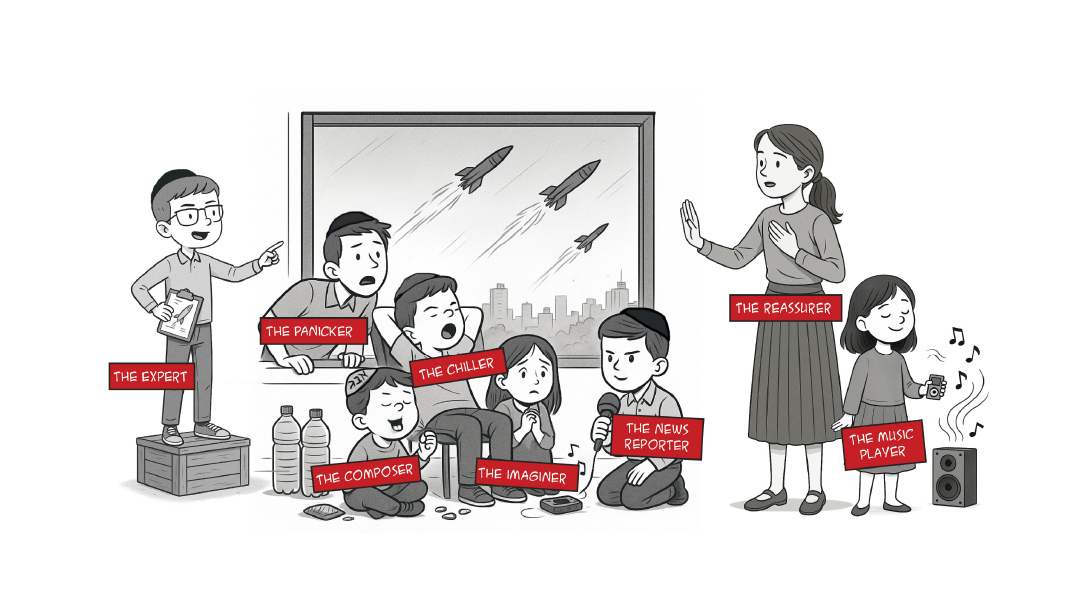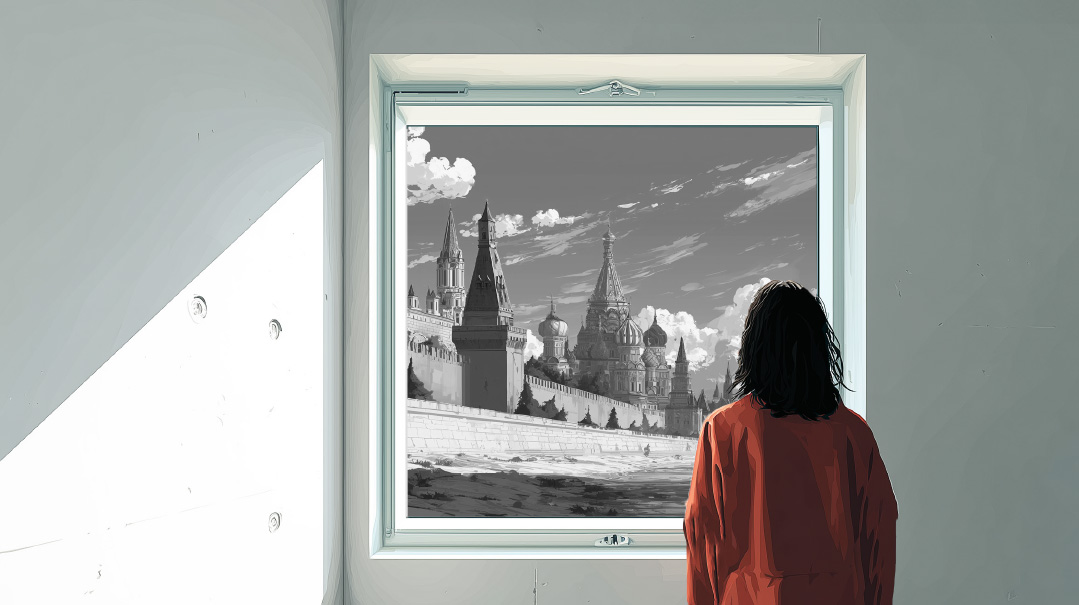Iron Sisters
| October 31, 2023When war struck, women everywhere wondered: How can I help? Three chareidi women teamed up to answer that question

IN 2019, Adina Goldberg, a firmware engineer for Intel, bought a sheitel from a supplier in China. She got constant compliments on it. “I kept trying to encourage my friends to order their own wigs from China,” she recalls, “but a lot of people didn’t want to put their money down on something that they couldn’t see or feel.”
Frustrated by how her friends’ caution was keeping them from saving money, Adina ordered five wigs from China in a range of lengths and colors, and held an open house in her home in Ramot, where women could come and try them on. When the open house proved successful, she began placing custom orders per each customer’s requirement. When the orders arrived, customers were able to decide if they wanted to buy them. Women loved this model, and Adina’s side chesed, originally called Ramot Wigs, now called Wigbox, grew. And grew.
At first, Adina was working out of her living room, sending women into her daughter’s room for privacy as they tried on the sheitels. As her inventory and customer base grew, she hired an assistant to meet customers in her basement guest room. “Women would complain that they have to walk through my house to buy a wig, and ask why I sold them out of bags instead of a proper display,” remembers Adina. “They didn’t get that I didn’t plan to make a business out of it.” But it became a business, with women coming from all over — up north, down south, even visitors from chutz l’Aretz.
As word spread, Adina hired staff, moved her “storefront” to a cabin in her yard, and grew her inventory to over 1,000 wigs. In three years, Wigbox sold over 2,000 wigs; Adina estimates that her customers have saved over seven million shekels.
A week before Rosh Hashanah, Wigbox moved into a massive new storefront location in Har Hotzvim, a high-tech industrial park located in northwest Jerusalem. “I was looking for a place that would be in between my work and my home, and this location is down the block from where I work,” says Adina.
Excited about the new challenge, the store held a successful open house.
Three weeks later, war broke out.
The massive new store stood empty.
A few days into the war, Adina saw a request for volunteers. Recognizing the name on the post, Adina called her friend. “Chana, is that you?”
Her neighbor, Chana Irom, had teamed up with her friend and neighbor Brachi Segev, to see how they could contribute to the war efforts. Chana had experience running homes for teen girls, and regularly lectures on and is involved in community initiatives on welfare, community resilience, and youth at risk. Brachi Segev, a clinical psychologist intern, runs a forum of about 250 chareidi psychologists. They were both getting phone calls from women who were stuck at home and wanting to help.
At first, it was hard for women to know where to direct their help. There were so many initiatives, so many messages, so many neighborhood drives, so many large organizations, and women didn’t know where to turn. “People here wanted to give, they wanted to contribute, they wanted to volunteer,” says Chana.
Chana and Brachi are both part of a WhatsApp group of around ten women from different areas in Israel who are all socially active. These women are a mix of entrepreneurs, teachers, writers, and therapists, all interested in findings ways to use their specific skills to help their communities and beyond. In the early days of the war, one of the members of the group posted about a call she got from a friend of hers, a secular Israeli named Sara Tancman. “There are so many chareidi women whose husbands are not serving in the army,” Sara had told her. “Is now not the time for them to come and help?”
When Chana and Brachi heard Sara’s questions, they thought about all the women they knew who were looking for a way to help, and about how meaningful it would be to have chareidi women use their strength to help other communities.
With their experience in project management, Chana and Brachi decided to try to streamline and organize many of the opportunities that abounded. Their core group of friends, plus some other women they knew, hopped on a Zoom call to brainstorm how they could help. “We understood that we want to do something woman to woman, to give with a personal touch, and to provide long-term support.”
They decided they would create a pyramid structure, like Yisro did for Moshe Rabbeinu, with area managers who would oversee volunteers in those specific locations. They started putting out the word that people could turn to the Iron Sisters, both if they needed help, or if they wanted to volunteer to help. Within a couple of hours, they had hundreds of volunteers. At the time of this interview, they had around 1,400 chareidi women signed up to volunteer.
When Adina heard about their plans, she was in. “I told Chana that our store is shut down, pretty much,” remembers Adina. “For the most part, it’s a pretty big space sitting empty. So I told her that if she wants, we have resources, we have computers, we have desks set up, we can put out snacks… whatever she needs.”
“It’s a humongous space. It’s beautiful,” says Chana. “And Adina and her husband are amazing. They gave us computers, they bought us cookies and iced coffee, they make sure we have what we need.”
In addition to lending her space as the headquarters, Intel gave Adina five days off from work to do volunteer work, so she was able to join in and help the Iron Sisters do their work.
“I never dreamed it would turn into what it is now,” Chana said. “It’s a very big kiddush Hashem. This country has been in such a contentious place for so long, people had lost their ability to see each other. Right away we got such interest from the secular world.”
Sara Tancman, whose phone call kickstarted this whole movement, has been instrumental in helping connect the group to expats and civic enterprises across Israel. She has also helped with publicity and fundraising.
Being in it for the long haul was also an important point for the Iron Sisters team. Chana notes that there are many emergency organizations that are around to help in a time of crisis, “But when the emergency goes away, the family is still broken. They still need help. They still need support and no one’s there.”
In tight-knit chareidi communities, families usually have their neighbors and communal support. “But women that are out there now, their families and community have broken apart because they’ve been evacuated from their homes with nothing,” says Chana.
When word got out that they had such a large volunteer base, organizations started reaching out to them, and opportunities to help poured in. Iron Sisters volunteers are making food for soliders and families. Other volunteers go to households and help with childcare, or any household work such as laundry or dishes. They help find guest apartments for dozens of families, and work to find teachers for the displaced children who are now no longer in school. Since many of the families are coming from the south, they don’t have clothes for Jerusalem’s colder weather — another detail that the Iron Sisters take care of. Iron Sisters volunteers also provide emotional support by attending funerals and paying shivah calls.
“A lot of time, when a family is feeling alone and displaced, just having a connection with someone who can help them find where to cook, and tell them what to do, and help them do something with the kids, and maybe even help with laundry — all these things help them feel connected to reality,” says Chana.
In addition to helping evacuated families, the Iron Sisters are also helping women whose husbands have been called up to the Army. Recently, someone reached out to the Iron Sisters on behalf of an army unit, wanting to sponsor gifts for the families of the soldiers. Each Iron Sisters volunteer was matched up with a family, told who their gift was going to — a soldier’s wife, his parents — and then purchased and hand-delivered their gift.
All of the coordination happens from the Wigbox-turned-Iron-Sisters headquarters, where there are about six women there every day for eight to ten hours straight. They look at each request, identify the neighborhood it’s in, and match the request to one of the Iron Sisters managers.
“We tell the manager what the story is, and ask if she thinks she can fill this request,” explains Chana. “If she says yes, she calls the woman in need and says, ‘Hi, my name is Chaya, I’m from Iron Sisters, I’m your contact, and I’m here for you. Tell me how you are, and then tell me, what do you need?’ ”
(Originally featured in Family First, Issue 866)
Oops! We could not locate your form.







